Van Avermaet: Reducing team sizes will make racing more attractive
Belgian hoping to help Belgium to Worlds success after savouring Olympic glory
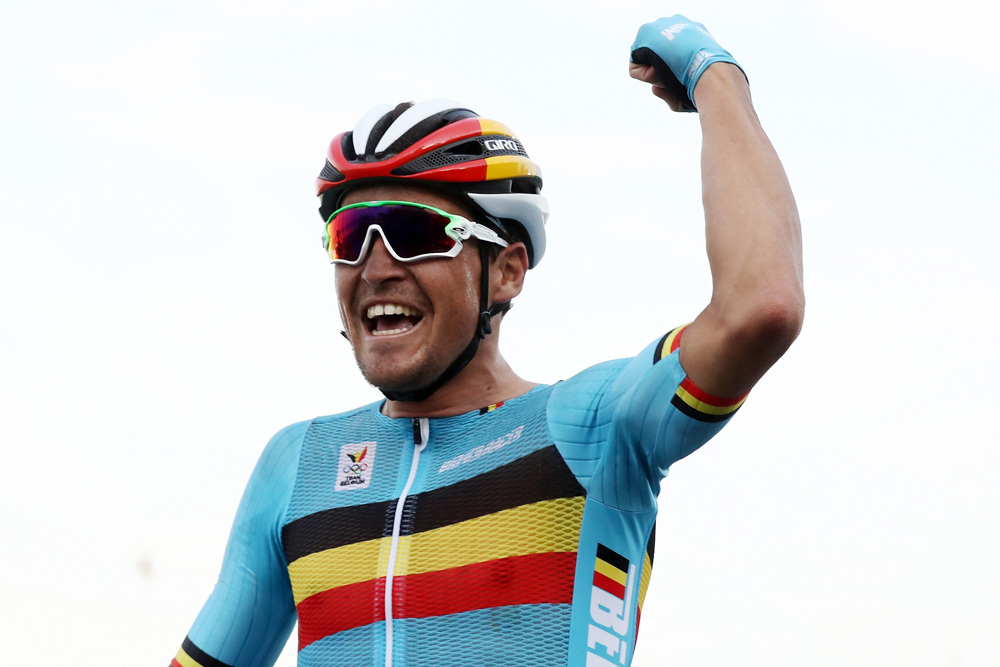
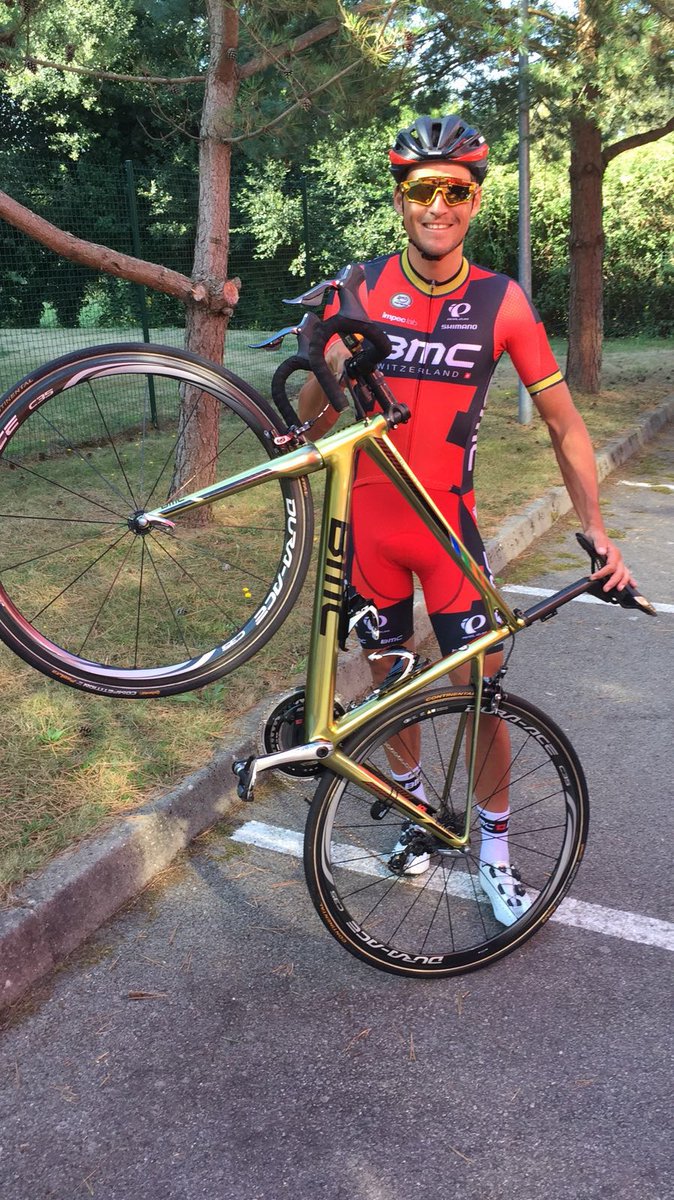
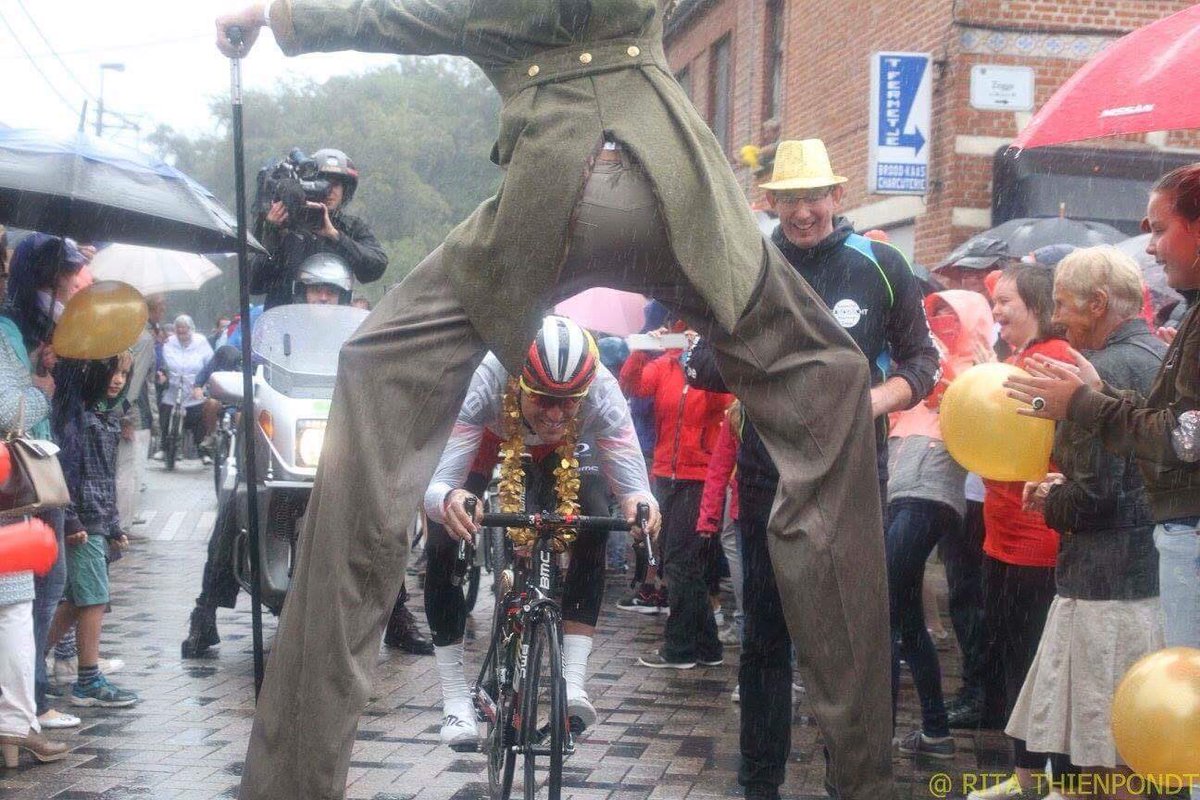
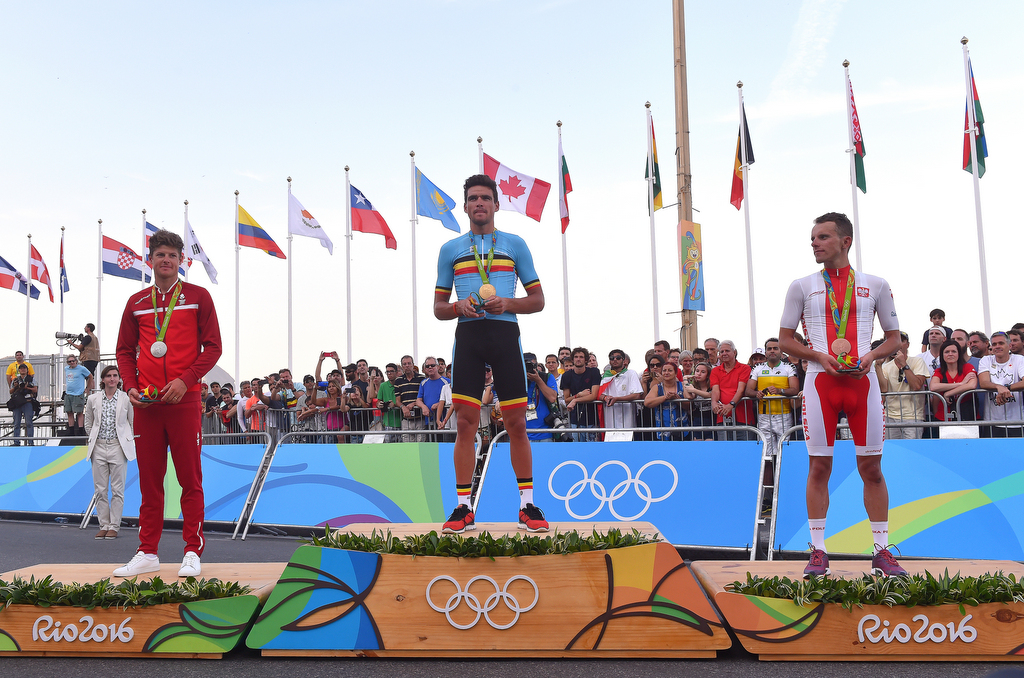
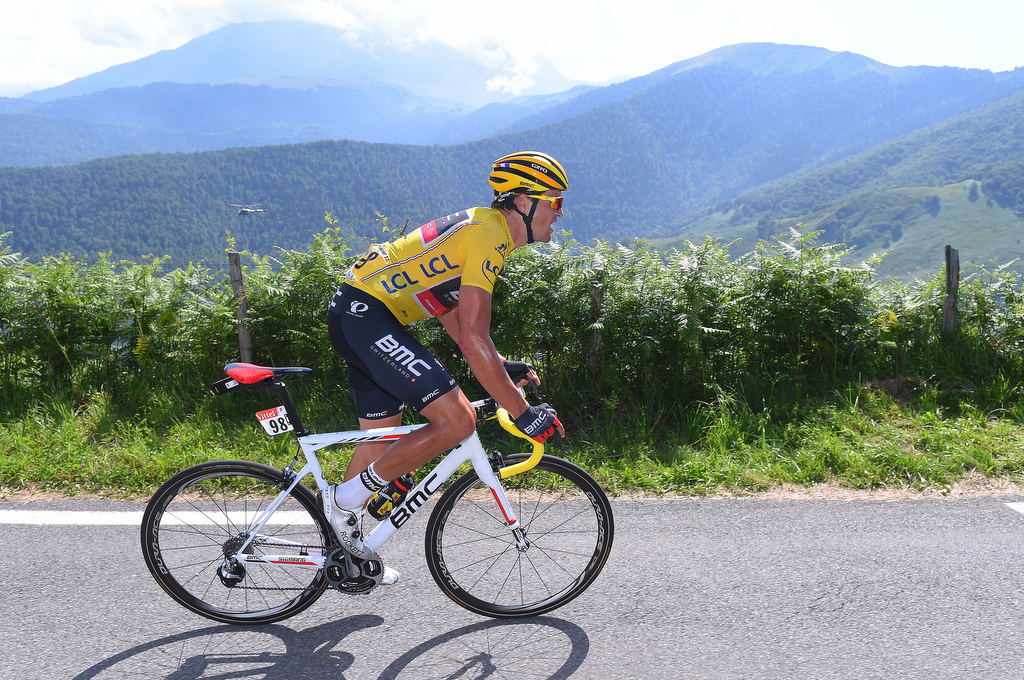
Newly crowned Olympic Champion Greg Van Avermaet (BMC) is keen to see organisers reduce the number of riders per teams in races. Speaking to a small group of journalists, Van Avermaet said that the new, much larger, WorldTour calendar necessitates the change but that a move to smaller teams will also make racing much more interesting to watch.
All WorldTour teams must participate in all WorldTour events, entering teams of nine for the three Grand Tours and teams of eight for all other events. Earlier this month, the UCI announced the new-look WorldTour calendar which will see the number of races grow from 27 to 37. To incorporate the increase, there are a number of clashes on the calendar, with Clasica San Sebastian, the Tour de Pologne and RideLondon-Surrey Classic all on the same weekend. WorldTour teams will be able to opt out of some of the new WorldTour races but the exact rules remain nebulous.
Tour de France director Christian Prudhomme has already indicated his desire to cut down on the size of teams. Van Avermaet believes that there are plenty of races where they could trial it first.
"If you see the WorldTour calendar, which will be so big next year, it might be good for all the teams because some of the teams only have 25 riders. It would be difficult to cover the whole programme with the WorldTour races. Maybe to split it up would not be a bad idea," Van Avermaet said in response to a question from Cyclingnews. "For sure we have to try it once, and there are some opportunities in other races. Maybe not directly in the Tour de France but we can try in the Dauphine, Paris-Nice or Tirreno-Adriatico.
"It would be nice to see how the peloton reacts and how the teams react to less numbers. Then you can make a conclusion after this."
When Prudhomme spoke to L'Équipe in July, he stated the need to cut the number of riders in a Grand Tour line-up from nine to eight. However, Van Avermaet believes that this could come down a little further again, with one-week stage races taking the lead from events such as the Tour of Britain and entering only six.
"In a Grand Tour, you have to go to maybe seven riders," he said. "In a Grand Tour you have some crashes in the first week and some riders get sick, so you have to go maybe to seven and then in a one-day race you have to go six."
The latest race content, interviews, features, reviews and expert buying guides, direct to your inbox!
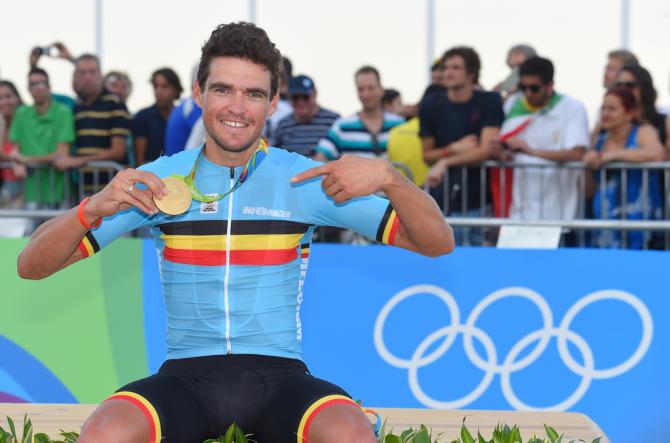
Olympic glory
The topic of team sizes stemmed from a discussion regarding Van Avermaet's recent Olympic road race victory. Olympic regulations mean that no team is greater than five, with many given an even smaller quota to contend with. The small sizes of the teams mean that controlling the race is an almost impossible task, as Britain found at the 2012 Olympic Games, laying the foundations for riders such as Van Avermaet to cause an upset.
"I think the races that have teams with less riders are always nice races for me because you get more opportunities to race more attractively," explained Van Avermaet. "That's what I like the most; it's hard to control. Nine rider teams it's easier to control and maybe it would be a different outcome in the end."
Despite a sterling middle part of the season, which saw him win a stage of the Tour de France and enjoy a stint in the yellow jersey, Van Avermaet was by no means the favourite heading into Rio. The parcours appeared to favour the climbers in the peloton, and world champion Peter Sagan was even scared off by it.
"I was also a bit scared of this because when I saw the parcours of the first lap I thought, this is good for me. But, when I saw the second lap, I knew that it would be hard to beat the real climbers and the real GC guys," said Van Avermaet.
It looked like that prediction was coming true with a three-man break containing Vincenzo Nibali, Rafal Majka and Sergio Henao went clear on the final climb. They appeared to have the medal places wrapped up until a crash on the descent took out Nibali and Henao, leaving Majka alone. The Polish rider had a solid lead on the run to the finish and the Belgian coach Kevin De Weert told Van Avermaet to race for silver, but he wasn't ready to do that.
"The coach from the national team came up and said that there is only one guy in front, and it was better to go for a sprint for second or third so that we could still get something, but I still believed that we could catch him," he explained. "When Fuglsang went after Majka it was for me also a good time to go with him. When me and Fuglsang were going, I felt that we were going pretty fast, and we could catch Majka. With two or three kilometres we got back and then, for me, it was just about staying focused. I'm the fastest guy of those three, but you still have to win and make sure you don't lose it in the final kilometres. In the end, doing the sprint was the easiest part of the race."
A family of Olympians
The Olympics hold a strange place in the cycling hierarchy. While for many sports the three-weeks of competition is the pinnacle and a four-year goal, in cycling it takes a backseat to races such as the Tour de France. However, the Olympics hold a place in Van Avermaet's heart after growing up on the stories of his father Ronald, who competed at the Games as a 21-year-old.
"My dad went to the Olympics in Moscow in 1980 so when I heard him talking about the Olympics in Moscow for him it was his highlight of his career and for me it is also a highlight just to participate. In the last kilometre, I realised that I could be an Olympic champion so that moment, when I came over the finish line, is a moment of happiness where you cross the line, and you realise that it's going to be one of the best moments of your career. That's how it was for me."
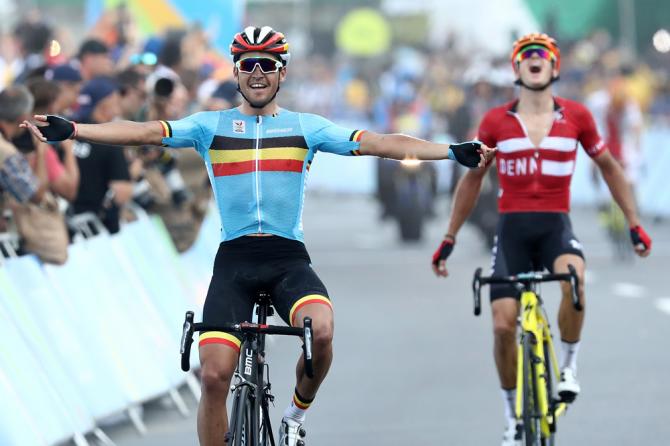
Finding success at the World Championships
The nature of the cycling circus means that not long after the dust settles on one success, riders are already thinking about the next target.
Van Avermaet returned to racing action at the Bretagne Classic at the weekend as he begins his preparations for the World Championships in Qatar in October. Again, Belgium will find themselves as underdogs on the pan-flat desert course, but Van Avermaet hopes that they can make the most of the conditions to upset the predictions once again.
"We have a strong team but we're not the big favourites because we don't have a really fast sprinter anymore," he said. "I think that [Tom] Boonen is going well, and we have a few other guys who have a fast sprint but not like guys like [Andre] Greipel or [Mark] Cavendish, so we have to be a little bit conservative.
"Hopefully, we will have a lot of wind on this day, and it will be an echelon race where we are strong, and then it will go as a small group to the finish. People always say that it will be a bunch sprint, but I'm not sure about that. It's going to be a really hard race with the heat and also the local course is really technical."
Born in Ireland to a cycling family and later moved to the Isle of Man, so there was no surprise when I got into the sport. Studied sports journalism at university before going on to do a Masters in sports broadcast. After university I spent three months interning at Eurosport, where I covered the Tour de France. In 2012 I started at Procycling Magazine, before becoming the deputy editor of Procycling Week. I then joined Cyclingnews, in December 2013.